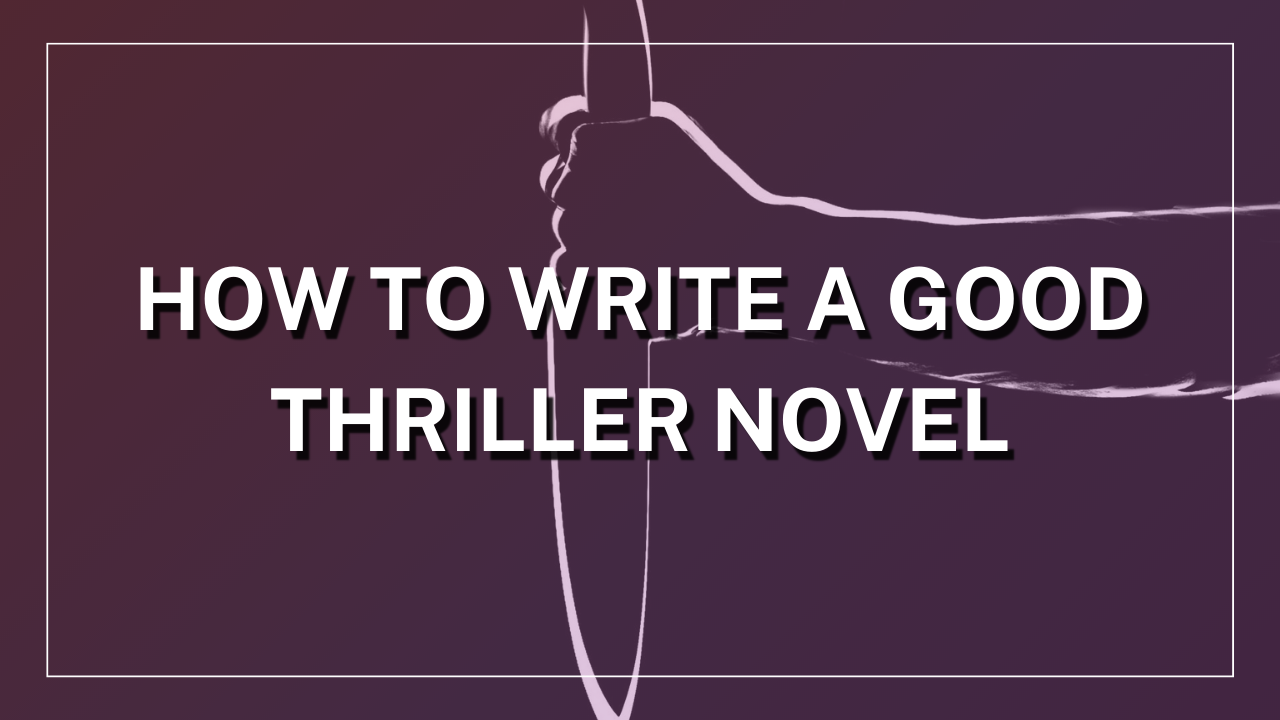Thriller is a popular genre that has captivated readers for decades. From heart-pumping action to psychological twists, thrillers are known for keeping readers on the edge of their seats. Writing a good thriller novel takes a combination of creativity, craft, and planning. In this blog post, we will explore some tips for how to write a good thriller novel that will leave readers wanting more.
- Start with a strong concept
The first step in writing a good thriller novel is to start with a strong concept. This could be a unique plot twist, a gripping hook, or an interesting character that readers will care about. The concept should be compelling and should give readers a reason to keep reading.
- Create a compelling protagonist
A good thriller novel needs a strong protagonist that readers can root for. The protagonist should be someone readers can relate to and should have qualities that make them likeable and interesting. It’s important to make the protagonist flawed and vulnerable, but also resourceful and determined. This will make the reader invested in the character and keep them engaged throughout the story.
- Develop a well-rounded antagonist
A good thriller needs a well-rounded antagonist that is just as compelling as the protagonist. The antagonist should be someone who presents a real threat to the protagonist, but who is also complex and multidimensional. The antagonist should have motivations and a backstory that make them more than just a one-dimensional villain. This will make the story more interesting and give readers a reason to care about what happens.
- Create tension and suspense
Thriller novels are all about creating tension and suspense. This can be achieved through pacing, plot twists, and cliffhangers. It’s important to keep readers guessing and to always keep the stakes high. Tension and suspense can be built through a variety of techniques, such as using short, punchy sentences or creating unexpected plot twists that keep readers guessing.
- Use dialogue to reveal character and advance the plot
Dialogue is an important tool in any novel, but it is especially important in thrillers. Dialogue can be used to reveal character, advance the plot, and build tension. Good dialogue should be snappy, realistic, and serve a purpose in the story. It’s important to avoid using dialogue as an info dump and instead use it to reveal the character and move the story forward.
- Keep the pace fast and exciting
A good thriller needs to have a fast pace that keeps readers engaged from beginning to end. This can be achieved through short chapters, cliffhangers, and plot twists that keep the reader guessing. It’s important to keep the momentum going throughout the story and to avoid slowing down the pace with unnecessary exposition or description.
- Create a satisfying ending
The ending of a thriller novel is just as important as the beginning. The ending should be satisfying and should tie up all loose ends. It’s important to give readers a sense of closure and to make sure that the resolution is believable and consistent with the rest of the story. The ending should also be surprising and satisfying, leaving readers feeling like they have been on an exciting and satisfying journey.
In conclusion, writing a good thriller novel takes a combination of creativity, craft, and planning. By starting with a strong concept, creating a compelling protagonist and antagonist, building tension and suspense, using dialogue effectively, keeping the pace fast and exciting, and creating a satisfying ending, writers can create a thriller that will keep readers on the edge of their seats from beginning to end. With practice and patience, anyone can write a great thriller novel that will captivate readers and leave them wanting more.

